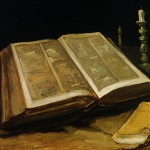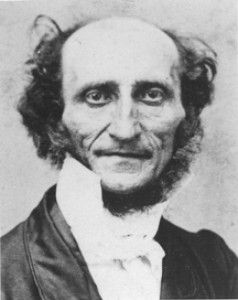I’ve recently been reading up on the history of Pietism, the forgotten aspect of Lutheran history. The most recent work I read on this subject is An Introduction to German Pietism: Protestant Renewal at the Dawn of Modern Europe by Douglas Shantz. This 500 page tome is a very detailed and comprehensive history of Pietism within Germany, stretching from the “proto Pietists” through the development of radical Pietism in the New World. The author also includes some great primary-source material at the end of the book. When reading this work, along with others, it has become apparent that the errors of the Pietist movement which orthodox Lutherans rightly fight against, come not from Spener himself, but from the second generation Pietists.
Pietism can roughly be placed into three separate categories: Spener’s Pietism, Francke’s Pietism, and radical Pietism. To lump all three of these movements together is far too simplistic, as each has their own distinctive emphases. There were some theologians, such as Arndt, Gerhard, and Spener, who argued that there was a necessity for moral and spiritual reform within orthodox Lutheranism. These figures did not view themselves as deviating from Confessional Lutheran doctrine. Spener is often called the “father of Pietism.” In some ways, this is true, as Spener’s Pia Desideria served as a catalyst for various reform movements in Germany. However, it is not really fair or accurate to lump Spener in with Francke or the radical Pietists, who deviated from Lutheran orthodoxy in a way that Spener himself did not.
Spener’s most notable contribution to the rise of Pietism was his promotion of conventicles, or Bible studies led apart from the regular church service. Spener argued that, along with the catechism, laity should be encouraged to study Scripture. Thus, he promoted the utilization of small groups called “conventicles.” For Spener, these groups met to discuss the sermon of that Sunday, and the pastor led these discussions. Though these groups met in homes, they were not viewed as something done apart from the institutional church. Abraham Calov and other orthodox Lutherans approved of Spener’s proposal. However, there were some groups who started to meet with only laity, wherein they began condemning the state church, arguing that the “pure church” was to meet separately from the traditional Lutheran service. After such developments, Spener got blamed. Spener continually had to defend his orthodoxy while condemning these sectarian groups. Spener quickly moved his meetings to the church building, emphasizing the continuity between the church and conventicles. Eventually, Spener ceased leading conventicles altogether.
What is usually described as “Pietism” really begins with August Hermann Francke. Francke was influenced by Spener’s work, along with Arndt, and after studying theology for some time, experienced a radical conversion. Due to his conversion experience, Francke expected that other Christians needed to experience a similar conversion as a testament to their faith. The emphasis one finds on a time of conversion within the Pietist movement–and contemporary evangelicalism along with it–arises, not from Spener, but from Francke. Along with the conversion experience, Francke argued that one needs to look for signs of conversion. Without these signs of conversion, salvation should be doubted. In this way, Francke fell into the same error of some American Puritans by barring people from the Lord’s Supper for not showing proper signs of conversion. This barring from the table would sometimes last for years. This, again, differentiates Spener from Francke. Spener himself expressed horror at the fact that Francke barred someone from the Supper for serving alcohol on Sundays. Though a friend and mentor to Francke, Spener condemned such strict practices.
In some ways, Francke adopted errors of Anabaptism. He wanted a pure church of only the converted. He also allowed for the modern day use of the gift of prophecy in conventicle meetings. However, Spener eventually convinced Francke to distrust modern-day prophets. Now, not everything that Francke promoted was necessarily bad. He helped reform education, and promoted the helping of the poor and orphans. He also wrote some helpful works on exegesis. However, it is Francke’s ideas that would eventually hurt the assurance of many Christians, and led in some ways to experientialism in the church.
We need to be careful when blaming Arndt or Spener for some of the missteps in Pietism. It was Francke, not Spener or Anrdt, who emphasized the personal conversion experience. It was Francke, not Spener or Arndr, who fought for a church of only the converted. It was Francke, not Spener or Arndt, who de-emphasized traditional Lutheran dogmatics. Spener and Arndt may very well have their theological issues as well, but lets stop blaming the entire development of Pietism on these two men.












